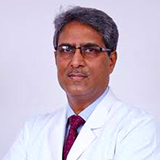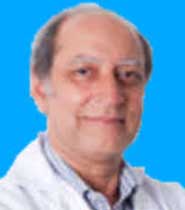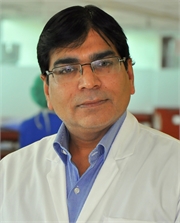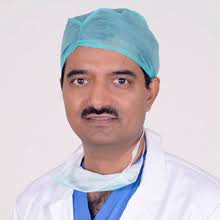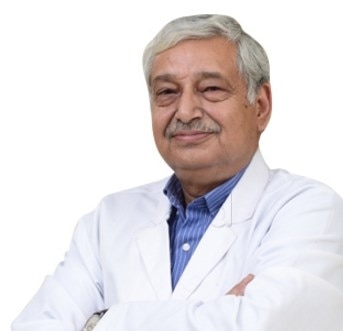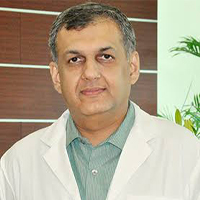Plastic Surgery Treatment IN INDIA
Plastic surgery has become a popular choice for individuals seeking aesthetic enhancement or reconstructive solutions. India has emerged as a global leader in this field, offering a combination of highly skilled surgeons, advanced medical facilities, and cost-effective treatments. From cosmetic procedures like rhinoplasty and facelifts to reconstructive surgeries for burn injuries and congenital defects, Indian hospitals cater to diverse needs.
Introduction
Plastic surgery has undergone a remarkable transformation over the years, evolving from a niche medical specialty into a widely sought-after field, meeting both aesthetic and reconstructive needs. India, with its advanced healthcare system and world-class medical professionals, has emerged as a global leader in this field, drawing thousands of domestic and international patients annually. Whether it’s for cosmetic enhancements or reconstructive solutions, India offers a unique combination of affordability, skilled expertise, and cutting-edge technology, making it a premier destination for plastic surgery.
Plastic surgery, by definition, refers to a medical specialty focused on reshaping or repairing parts of the body to enhance appearance or restore functionality. These surgeries are broadly divided into two categories: cosmetic surgery, which enhances physical appearance, and reconstructive surgery, which addresses medical conditions, injuries, or deformities. In India, the demand for these procedures has surged due to increasing awareness, societal acceptance, and advancements in medical technology.
What are the Types of Plastic Surgery in India?
Plastic surgery in India encompasses a wide range of procedures, including:
Cosmetic Surgery
- Rhinoplasty (Nose Job): Rhinoplasty is a surgical procedure to reshape the nose, improving both appearance and breathing. It can reduce or increase the size of the nose, change the shape of the nostrils, and correct nasal asymmetry.
- Facelift: A facelift tightens facial tissues to reduce wrinkles, sagging skin, and other signs of aging, providing a more youthful appearance.
- Liposuction: This procedure removes excess fat deposits from areas like the abdomen, thighs, and arms, helping achieve better body contours.
- Tummy Tuck (Abdominoplasty): A tummy tuck removes excess skin and fat from the abdomen while tightening abdominal muscles for a flatter, firmer look.
- Breast Augmentation/Reduction: Breast augmentation uses implants or fat transfer to increase breast size, while reduction surgery alleviates discomfort caused by overly large breasts.
Reconstructive Surgery
-
- Burn Reconstruction: Restores appearance and functionality for patients who have suffered severe burns.
- Cleft Lip and Palate Surgery: Corrects congenital facial deformities, allowing better speech and appearance.
- Scar Revision Surgery: Minimizes the appearance of scars, improving skin aesthetics.
- Hand Surgery: Addresses injuries, deformities, and diseases affecting the hand.
Non-Surgical Procedures
-
- Botox and Fillers: Reduces wrinkles and restores facial volume with minimally invasive injections.
- Laser Skin Resurfacing: Uses laser technology to improve skin texture, tone, and reduce blemishes.
- Chemical Peels: Removes damaged outer skin layers, revealing smoother and more radiant skin.
Why is Plastic Surgery Gaining Popularity in India?
In the last decade, India has seen exponential growth in the field of plastic surgery. Several factors contribute to this rise:
- Changing Beauty Standards:
Social media, celebrity influence, and evolving beauty standards have driven individuals to seek aesthetic enhancements. Procedures like rhinoplasty, liposuction, and facelifts are no longer exclusive to the elite but accessible to a wider demographic. - Rising Medical Tourism:
India has become a preferred destination for medical tourists, offering high-quality treatments at a fraction of the cost compared to Western countries. Patients from the Middle East, Africa, Europe, and even the United States travel to India for procedures like tummy tucks, breast augmentation, and burn reconstructions. - Advances in Medical Technology:
The availability of state-of-the-art equipment and innovative techniques like robotic surgery, minimally invasive procedures, and advanced imaging has revolutionized the field. These advancements ensure better outcomes, quicker recovery times, and reduced risks. - Skilled Surgeons:
India boasts some of the most experienced and internationally trained plastic surgeons who specialize in both cosmetic and reconstructive procedures. Many surgeons are members of global organizations like the International Society of Aesthetic Plastic Surgery (ISAPS) and have contributed significantly to advancements in the field. - Affordability and Accessibility:
Plastic surgery in India is not only cost-effective but also widely accessible. The country offers diverse options ranging from luxurious private hospitals to specialized clinics, catering to patients across varying budgets.
What is the Cost of Plastic Surgery in India?
The cost of plastic surgery in India varies based on the procedure, surgeon’s expertise, and hospital location. Below is a rough estimate for metro cities like Delhi, Mumbai, and Bangalore
| Procedure | Cost in INR | Cost in USD |
| Rhinoplasty | 70,000 – 2,00,000 | 850 – 2,500 |
| Facelift | 1,50,000 – 3,00,000 | 1,800 – 3,600 |
| Liposuction | 80,000 – 2,00,000 | 1,000 – 2,500 |
| Tummy Tuck | 2,00,000 – 3,50,000 | 2,500 – 4,300 |
| Breast Augmentation | 1,50,000 – 3,00,000 | 1,800 – 3,600 |
| Botox (per session) | 15,000 – 30,000 | 180 – 360 |
| Burn Reconstruction | 1,50,000 – 5,00,000 | 1,800 – 6,000 |
What are the Factors Affecting the Cost of Plastic Surgery?
Several factors influence the cost of plastic surgery in India:
- Type of Procedure: Complex surgeries cost more than minor or non-invasive procedures.
- Surgeon’s Expertise: Renowned surgeons with vast experience charge higher fees.
- Hospital Location: Metro cities typically have higher costs than smaller towns.
- Technology and Equipment: Advanced techniques like robotic surgery increase costs.
Post-Operative Care: Medications, follow-up visits, and rehabilitation can add to the total expense.
Why Choose Al Afiya Medi Tour for Plastic Surgery?
Al Afiya Medi Tour is a trusted name in facilitating medical treatments in India. Here’s why patients prefer their services:
- Comprehensive Assistance: From visa arrangements to hospital bookings and accommodation, Al Afiya handles everything efficiently.
- Wide Network of Hospitals: Partnerships with top hospitals like Apollo, Fortis, and Medanta ensure world-class care.
- Cost Transparency: Patients receive detailed cost estimates with no hidden charges, ensuring affordability.
- Skilled Surgeons: Al Afiya connects patients with board-certified, experienced plastic surgeons known for their expertise.
Personalized Care: Dedicated coordinators provide 24/7 assistance throughout the treatment journey, ensuring a smooth experience.
What are the Pre-Procedure Guidelines for Plastic Surgery?
Before undergoing plastic surgery, patients should:
- Consult a Specialist: Discuss goals, risks, and expectations in detail with the surgeon.
- Medical Evaluation: Undergo tests to assess overall health and suitability for surgery.
- Disclose Medical History: Inform the surgeon about allergies, ongoing medications, and previous surgeries.
- Stop Smoking and Alcohol: Avoid these at least 2 weeks prior to surgery to reduce complications.
- Follow Pre-Surgery Instructions: Adhere strictly to dietary and medication guidelines provided by the doctor.
What are the Post-Procedure Care for Plastic Surgery
Recovery is a critical phase of plastic surgery. Patients should:
- Follow Doctor’s Instructions: Take prescribed medications, attend follow-up visits, and report any unusual symptoms.
- Rest Adequately: Allow the body to heal by avoiding strenuous activities for the recommended period.
- Maintain Hygiene: Keep the surgical site clean and dry to prevent infections.
- Avoid Sun Exposure: Protect the skin from direct sunlight using sunscreen or clothing.
- Adopt a Healthy Diet: Include protein-rich and nutrient-dense foods to support recovery.
Top Plastic Surgery Treatment Doctors in India
The right doctor to consult for a Plastic Surgery Treatment case.
Dr. Amitabh Singh
Year of experience: 12 Years of Experience
Dr. R.K Seth
Year of experience: 33 Years of Experience
Dr. Hari Goyal
Year of experience: 26 Years Of Experience
Dr. Durgatosh Pandey
Year of experience: 18 years of experience
Dr. S Hukku
Year of experience: 35 years of experience
Dr. V.P. Bhalla
Year of experience: 40
Clinical Director at Marengo Asia Hospitals Formerly W Pratiksha Hospital, Gurgaon
Leading Hospitals for Plastic Surgery Treatment in India
Looking For The Best Doctor & Hospital?
Fill up the form and get assured assitance within 24 hrs!
FAQs
- What is the recovery time for plastic surgery?
Recovery time varies by procedure but generally ranges from 1 week to 6 months.
- Are Indian hospitals equipped for plastic surgery?
Yes, Indian hospitals have advanced technology and experienced surgeons.
- Is plastic surgery safe in India?
With highly qualified surgeons and accredited facilities, plastic surgery in India is safe.
- How do I choose the right plastic surgeon in India?
Look for board-certified surgeons with significant experience in the specific procedure.
- What are the risks of plastic surgery?
Risks include infection, scarring, and anesthesia complications. These are minimized with skilled surgeons.
- How do I prepare for plastic surgery?
Follow pre-operative guidelines, attend consultations, and maintain good health.
- Can foreigners access plastic surgery in India?
Yes, India welcomes medical tourists with streamlined visa and treatment processes.
- What is the cost of non-surgical procedures like Botox in India?
Botox costs approximately INR 15,000 – 30,000 (USD 180 – 360) per session.
- Which are the best hospitals for plastic surgery in India?
Top hospitals include Apollo Hospitals, Fortis Healthcare, and Max Super Specialty Hospitals.
- Who are some of the best plastic surgeons in India?
Leading surgeons include Dr. Debraj Shome, Dr. Manoj Khanna, and Dr. Arindam Sarkar.
- Why should I choose the Al Afiya Medi Tour?
Al Afiya offers end-to-end support, connects patients with top hospitals and surgeons, and ensures affordable treatments.
Get FREE Evaluation
Treatment plan and quote within within 24 hrs!
Let us help you
Get your personalized Estimate Now
Top Doctors & Surgeons in India
Best Hospitals in India
Best Treatments in India
Indian Medical Visa From
Copyright © 2025 Al Afiya Medi Tour | All Rights Reserved.

